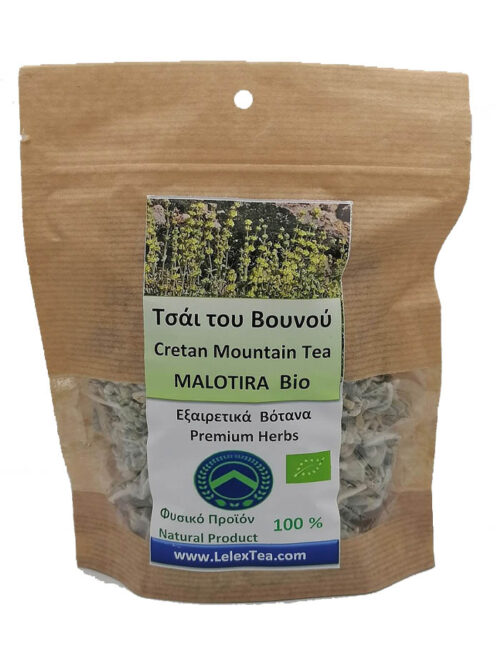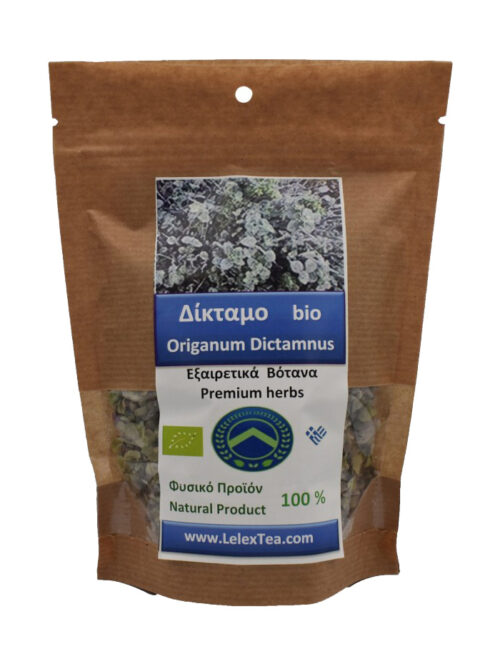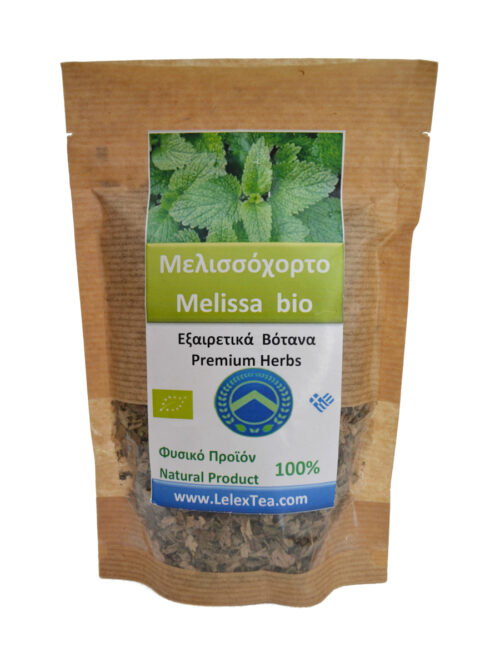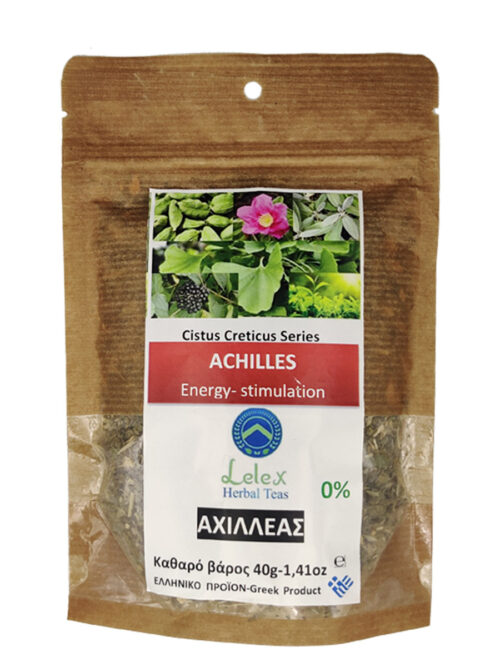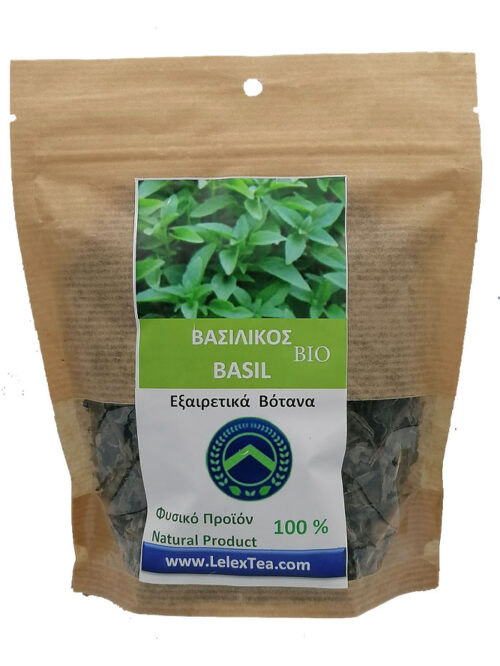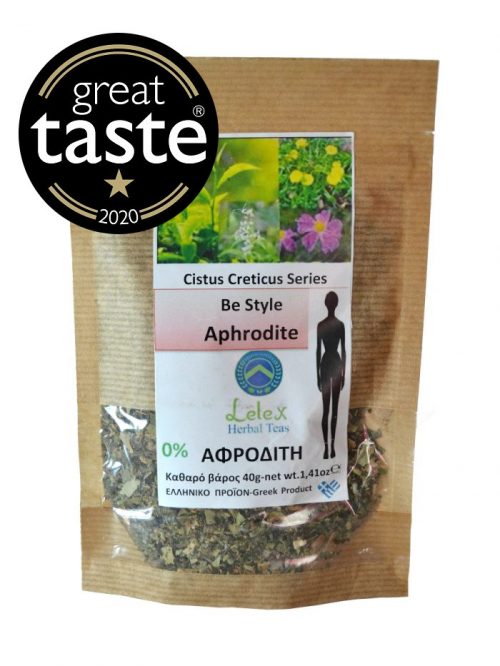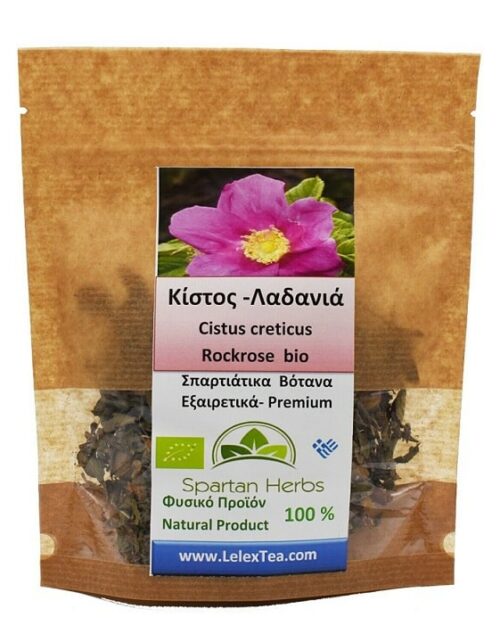St John’s Wort (Hypericum perforatum)
Common Names:
Family: Hypericaceae
Introduction:
St. John’s Wort is a perennial herb known for its vibrant yellow flowers and medicinal properties. Traditionally used to support mental health, this herb has a rich history in herbal medicine, spanning back to ancient Greece. Beyond its health benefits, it is appreciated for its beauty in gardens and its subtle, earthy flavor in culinary applications.
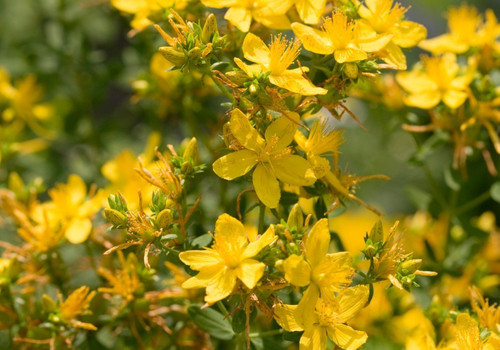
History:
The use of of this bright herb dates back to ancient Greece, where it was used for a range of ailments, including various nervous disorders. But it’s use has not been halted as it’s still used till modern day whether used for the brewing of tea or the making of a special oil. The name “St. John’s Wort” is derived from its traditional flowering and harvesting on St. John’s Day, June 24th. This herb was also believed to ward off evil spirits during the Middle Ages, and it has been used in folk medicine across various cultures for centuries.
Culinary Uses of St. John’s Wort
While primarily known for its medicinal properties, it can also be used in the kitchen. The flowers and leaves impart a delicate, bittersweet flavor to dishes and can be used in:
- Herbal Teas: Fresh or dried flowers make a soothing tea.
- Infused Oils: The flowers are commonly infused in oil, which can be used in dressings or as a base for cooking.
- Desserts: Small amounts can add an intriguing flavor to jams, jellies, and desserts.
It’s important to use it sparingly in cooking due to its potent medicinal properties.
Making Tea:
- You’ll need 1 tablespoon of fresh leaves (or 1 teaspoon of dried leaves) and 1 cup of boiling water.
- Rinse the leaves under cold water. If using fresh leaves chop them up to release their essential oils.
- Place the leaves in a teapot or cup and pour boiling water over it. Cover and steep for about 5 minutes.
- Strain the tea to remove the leaves. You can sweeten it with honey or lemon for taste if desired.
Discover Organic Greek St. John’s Wort
A powerful herb with a long history of supporting mental well-being. Whether you’re interested in its health benefits, culinary uses, our St. John’s Wort offers something for everyone!

Cultivation:
St. John’s Wort is a hardy, low-maintenance herb that thrives in full sun to partial shade and well-drained soil. It is suitable for borders, wildflower gardens, and can even be grown in containers.
• Planting: Sow seeds in the fall or early spring. Cuttings or division in spring or fall is also effective.
• Care: Water regularly until established. It is drought-tolerant but benefits from occasional watering during dry periods.
• Harvesting: Harvest the flowering tops in early to mid-summer when the flowers are fully open.
Frequently Asked Questions For St. John’s Wort
Q: Can St. John’s Wort interact with medications?
A: Yes, it can interact with several medications, including antidepressants, birth control pills, and others. Consult a healthcare provider before use.
Q: Is St. John’s Wort effective for depression?
A: Studies suggest that it may be effective for mild to moderate depression, but it should be used under the guidance of a healthcare professional.
Q: How can I identify St. John’s Wort in the wild?
A: Look for its bright yellow flowers with black dots along the edges and a perforated appearance to the leaves when held up to light.
Q: Is St. John’s Wort invasive?
A: In some areas, it can become invasive. It’s important to manage its growth and prevent it from spreading into natural habitats.
Q: Where can I find St. John’s Wort?
A: St. John’s Wort grows as a wild herb in the mountainous regions of Greece. You can buy it from specialty tea shops, health food stores and reputable online retailers. Always look for a certified organic product to ensure the highest quality. Discover the Greek, certified 100% organic, high quality St. John’s Wort LelexTea in our online store, LelexTea or in our local store.

Our crops are grown with love and respect for Nature.

The herbs are of excellent quality handpicked.

The combination and proportions of herbs are based on ancient and new recipes.

Our packages are protected from the sun, moisture and temperature.
Notice:
Although St. John’s Wort is generally safe for culinary use, medicinal use should be approached with caution and everything mentioned is for educational purposes only. Pregnant and nursing women should always consult a healthcare professional before using St. John’s Wort as a remedy.

